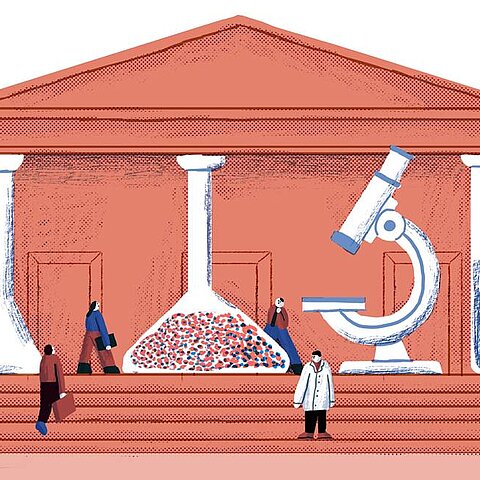Ponente:
- Taru Haapala
Fellow MIAS - Tomás y Valiente - Emilia Aiello
Investigadora Ramón y Cajal
Universidad Autónoma de Madrid
Facultad de Derecho. Seminario VIII.
Horario: 11:30-13:30
El seminario también será accesible online.
Gracias por rellenar el formulario para obtener el link de acceso.
Resumen:
In the past decade, the role of science and scholarship in public debates about democratic politics have become politicised. The ongoing “epistemic crisis” affects several political contexts globally and is not only caused by social media platforms but stems from a more general distrust of Western media and political institutions (Cosentino, 2020, p. 8). This climate of distrust is favouring, in particular, the populist discourse. There are powerful populist discourses based on anti-intellectualism and questioning the legitimacy of science in politics. The so-called “alternative facts” have become normalised as a part of post-truth phenomena such as the decline of trust in experts (Harsin, 2018), democratic institutions (Cosentino, 2020), and news media (Haapala & Roch, 2025; Michailidou & Trenz, 2021), which can be seen in various manifestations such as online rumours, conspiracy theories, and internet hoaxes.
At the same time, progressive forces in liberal democracies look for support from science to acquire research-based advice to inform political decision-making. In 2021, the citizen initiative “Science in the Parliament” had a key role in the creation of “Office C”, the permanent office of scientific advice in the Congress of Deputies of the Spanish parliament. The aim of the initiative is to provide the Chamber of Deputies with scientific evidence on a wide range of issues to support informed legislative decision-making. So far, it has produced ten Reports C based on rigorous literature reviews and expert interviews, facilitated exchanges between deputies and scientists through pairing programmes, and organised public Dialogues C sessions to promote open and evidence-informed debate.
This seminar will explore how this citizen-led initiative can foster institutional change in times of crisis when the relationship between science and politics becomes pronounced in public debates. Drawing on the experience of Ciencia en el Parlamento, a grassroots movement launched in 2018, the discussion will examine how civic engagement and cross-sector collaboration helped create the political and social conditions that made the establishment of a parliamentary science advice office in Spain possible. The seminar will also reflect on the broader cultural and political dynamics that allowed such an initiative to gain traction amidst increasing politicisation of science in liberal democracies. Emphasis will be placed on the normative and practical challenges of mobilising diverse actors, generating trust, and institutionalising scientific knowledge in democratic contexts.
Fig.: La iniciativa ciudadana Ciencia en el Parlamento nació en 2017. Es una iniciativa ciudadana independiente formada por científicos convencidos de que la ciencia debe ser una fuente de información a tener en cuenta para legislar. / Cinta Arribas.







